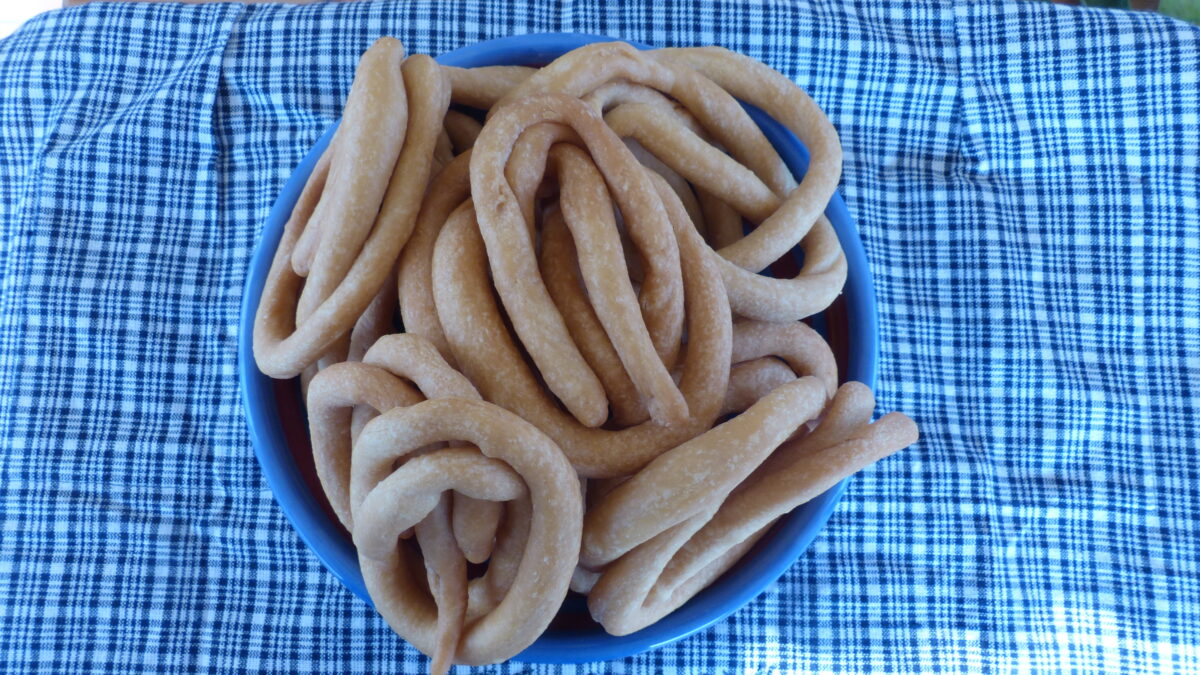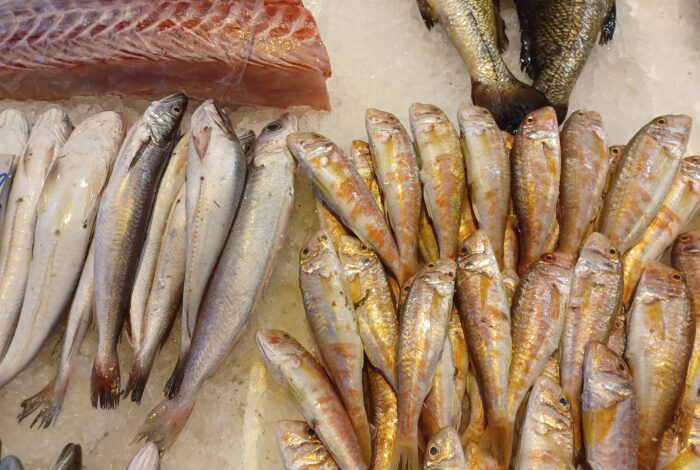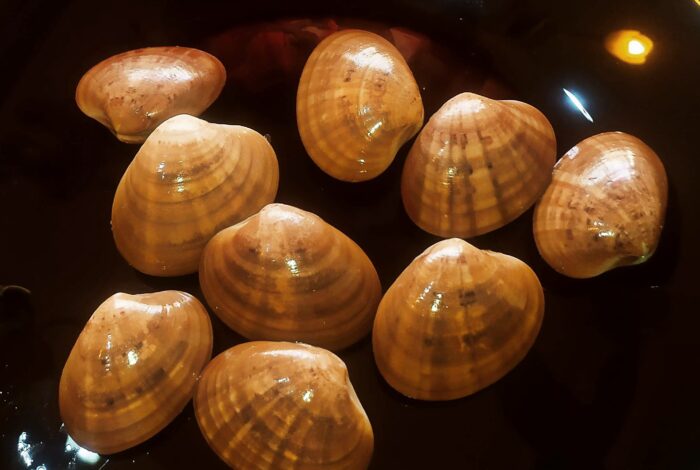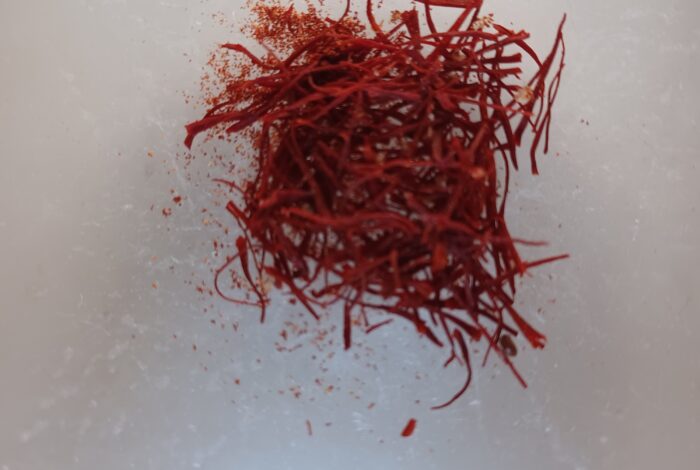Soultana-Maria Valamoti – Professor, School of History and Archaeology, Aristotle University of Thessaloniki
The cereals cultivated in Greece since the 7th millennium BC formed a basic component of the diet, and flour made from them – whether wheat or barley and ground using stone hand mills – could be transformed into many different recipes. Some of these required that the dough be fried in olive oil, often in a cooking utensil similar to modern frying pans. One such recipe for fried dough that has been passed down to us from ancient texts was known as enkris, attested from as early as the Archaic period. Specifically, the word is first encountered in Athenaeus, who quotes a verse by the 7th-century BC poet Stesichorus. In fact, Athenaeus informs us that enkris was a confection made of dough boiled in oil and then coated with honey. Aristophanes and other comic poets mention the specialist vendors – women – who sold these sweet delicacies.
Another form of watery dough that firmed during cooking was known in ancient Greece as itrion. This preparation is mentioned in ancient texts as early as the 7th century BC, in the poems of Solon and Anacreon. The latter mentions in one of his poems that he had a small piece of itrion for breakfast. Some additional ancient authors also mention this preparation, though the method of cooking the dough remains unclear. A simile in the poetry of Matron of Pitane could be construed as suggesting that itrion had a golden-brown colour. We learn from Galen that itria were made from watery dough that thickened upon cooking – a description that refers to much later preparations, dated to the 2nd century AD, known as rhymata and lagana. Does the likely golden-brown color of these items hint that the watery dough was fried in oil? That is something we may never know for sure.
Today, Greek cuisine features a wide variety of preparations and desserts based on frying doughs of watery consistency, typically made from wheat flour and water. The ancient Greek enkrides bear striking similarities to modern-day loukoumades, which are also made by boiling a somewhat battery dough in plenty of hot oil. Crispy pastries such as xerotigana, diples, and otia, found in various Greek regions, are made from dough that is first rolled into a sheet and then skilfully folded – either before or during frying in oil. The addition of honey brings these preparations close to ancient sweets. As for the lalaggia of Mani, or lalangites from mainland Greece, they are certainly crisp and golden-brown in colour – just as ancient poetry allows us to imagine.










